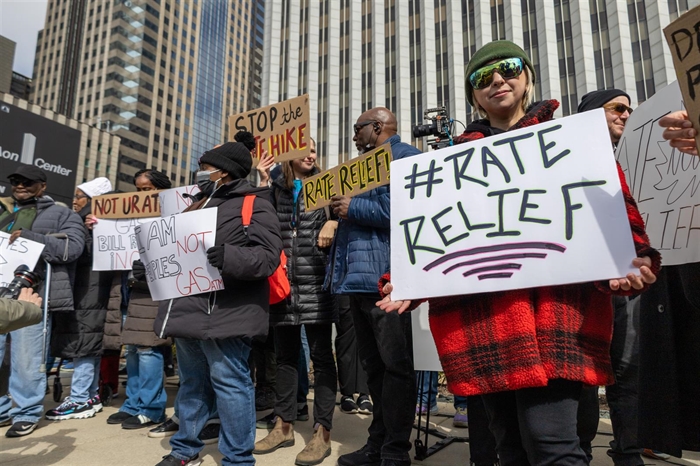By ANDREW ADAMS
Capitol News Illinois
Utility customers throughout Illinois will likely see higher natural gas bills beginning in January after staff at the state’s utility regulatory agency recommended rate increases for four gas companies.
Those recommendations – made by administrative judges at the Illinois Commerce Commission – next go to the appointed five-member commission itself. Over the next two months, the ICC will weigh whether to approve rate hikes for the 4.1 million customers of Ameren Illinois, Nicor Gas, Peoples Gas and North Shore Gas.
Estimates on the consumer cost of the rate increases, which go into effect in January, vary.
Nicor, which serves 2.2 million Illinoisans, estimates that their original request would increase customer bills by about $9.28 per month. Ameren customers’ bills are expected to increase by several dollars per month as well. Peoples Gas claims that, due to the falling price of natural gas, customer bills will remain at similar levels to last winter.
The proposed rate increases have drawn criticism from consumer and environmental advocates. Consumer advocacy groups, like Illinois PIRG, oppose the increases and have argued the utilities are spending money irresponsibly.
PIRG’s director, Abe Scarr, said that he expects the commission to modify the recommendations “to be more consumer conscious, more climate conscious.”
“The big question is what changes will the commissioners actually make,” Scarr said.
Scarr and other advocates have been watching the commissioners closely throughout the rate case process for hints as to how they might rule. The commissioners are all relatively recent appointees of Gov. JB Pritzker, with three having joined the board in the spring.
One of the major concerns in the gas cases – and the infrastructure spending driving the rate increases – is the electrification of residential heating and cooking across the U.S. Advocates say this could lead to a future where companies create “stranded assets,” meaning infrastructure that is no longer used.
But the gas companies have defended their requested increases by pointing to the fact that much of the infrastructure spending is required for safety reasons and by federal law.
“The company’s cost of service is now increasing due to continued investments in our system infrastructure to meet new federal compliance-related regulations and industry best practices that help ensure system-wide reliability,” Allison Gregoire, a Nicor Gas spokesperson, said in an email to Capitol News Illinois.
Higher Prices, Higher Profits
The ICC has several levels to control the price of gas utility bills, with one of the most significant being setting utilities’ “return on equity” – in other words, the profit that’s returned to shareholders.
This has been a major point of contention throughout the 11-month rate case process, with advocates, companies, the state’s attorney general, and the staff of the ICC all proposing different potential rates.
Ultimately, the administrative judges overseeing the cases sided with ICC staff on their recommended profit rates. For Nicor and Ameren, they recommended a 9.89 percent return to shareholders. For Peoples Gas and North Shore Gas – which are owned by the same parent company, the administrative law judge recommended a 9.83 percent return.
While lower than the companies’ requested profit rates – all of which were above 10 percent – the recommended rates were higher than any proposed by consumer advocates.
The Citizens Utility Board, a nonprofit created by the General Assembly in the 1980s to advocate for consumers before the ICC, was part of a coalition of organizations that argued for a 9.5 percent profit rate for Peoples Gas and Ameren and 9.4 percent for Nicor.
“Too often, they (the ICC) side with utilities, especially when it comes to the profit rates for shareholders,” CUB director Sarah Moskowitz said in an interview.
Utilities also say a wider profit margin allows them to more easily attract investments and conduct business transactions.
“The requested rate of return will give us access to affordable project financing with lower debt costs, and those savings will be passed on to our customers,” Tucker Kennedy, Ameren’s director of communications, said in a statement.









